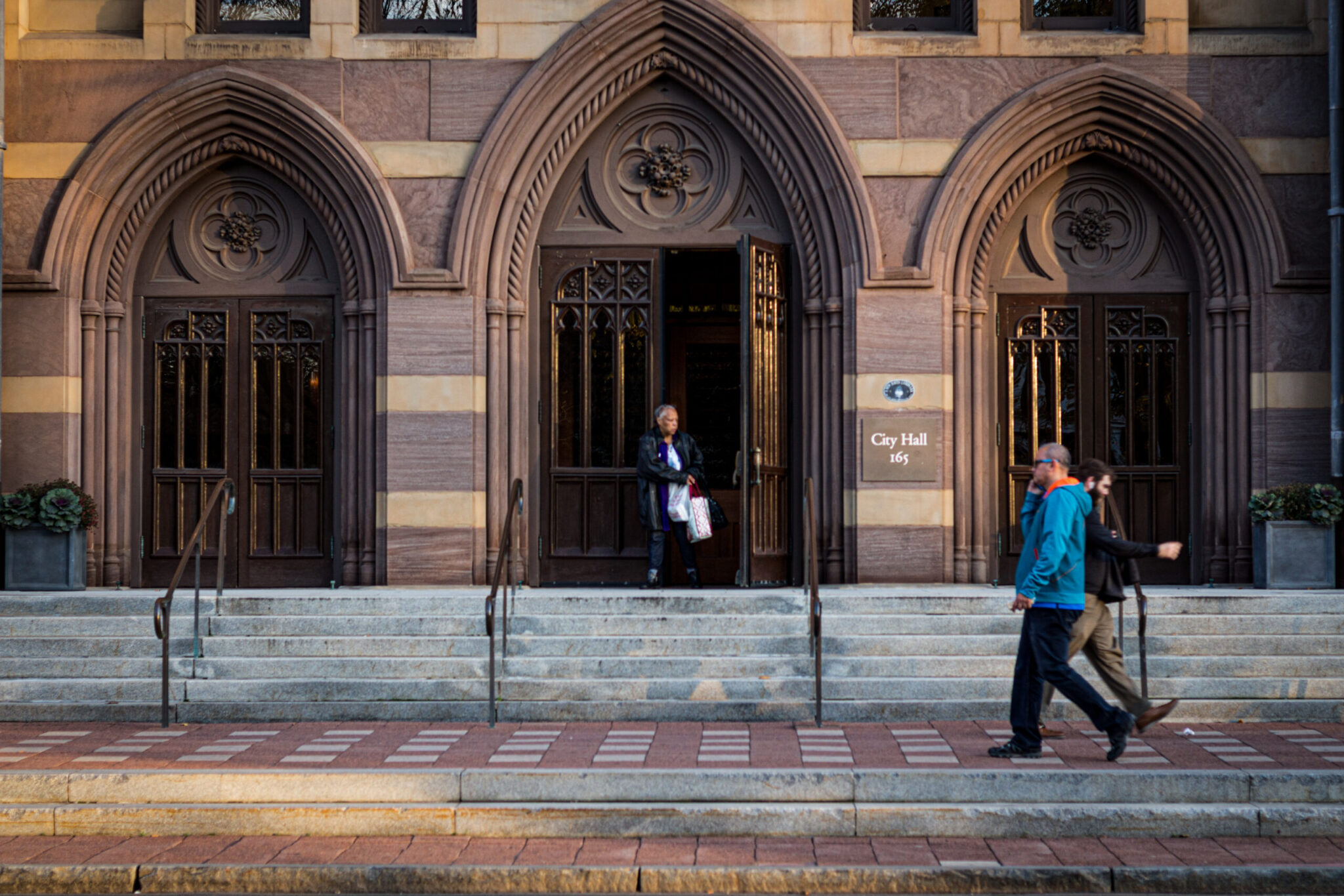Charter changes pass Board of Alders, heads to ballot in November
A proposal to increase term limits for public officials from two to four years unanimously passed a general Board of Alders meeting in early August; in November, New Haveners will vote on the full slate of charter amendments.

Yale Daily News
Starting in 2027, the New Haven mayor, members of the Board of Alders and other city officials might serve four-year terms instead of the current two-year terms.
The 23 alders present at the Board of Alders general meeting on Aug. 7 unanimously approved a proposal with revisions to New Haven’s charter. If approved by voters citywide during November’s general election, the new charter will increase the length of elected officials’ terms, give the Board of Alders more power to restructure commissions and boards and increase compensation for alders.
New Haven’s charter, which establishes the city’s governing structure, is renewed every 10 years. The board established the Charter Revision Commission in January to review possible changes to the document. The commission has since met 13 times to hold public hearings, work through the changes and draft a revised charter.
New Haven is the only large city in Connecticut that does not have four-year terms for mayors. Mayor Justin Elicker told the News that the transition to four-year terms would allow the mayor and board to make big decisions and have enough time to accomplish “important things.”
“Elections, while important, take a lot of time and money,” Elicker said. “Having elections every four years allows people to [choose] leadership but also reduces the distraction and [gives elected officials] the ability to govern.”
Along with the mayor, alders and the city clerk would also have longer terms. These changes would go into effect in 2027, following two more electoral cycles.
Fair Haven Alder Sarah Miller told the News that while she understands potential concerns over the four-year terms for alders “given the poor track record of some alders,” she still supports the change.
“It will bring more stability for those working on long-term projects and building broad coalitions within their wards,” Miller wrote.
The new charter also allows the Board of Alders to change the structure of city commissions and boards through the usual legislative process, without waiting 10 years until the next charter revision to make specific structural changes.
Among other changes, the revised charter would increase the annual compensation for alders from $2,000 to $5,000 to account for inflation and extend the window for alders to approve appointees to the city’s governing bodies. The revised charter would also require all city contracts of above $100,000 to be approved by the BOA.
During the charter revision process, activists argued that the city should allow non-citizens to serve on commissions and boards. No state law prevents cities from implementing such a change, but the law also does not explicitly grant cities this power. Attorney Steve Mednick, who is serving as a legal consultant for the city during the charter revision, explained in a commission meeting in June that under Connecticut state law, cities can only create legislation in areas the state has clearly allowed.
The new charter instead includes language allowing the BOA to approve non-citizens to serve on commissions and boards “if permissible under Law” — or when the state legislature will explicitly allow it.
Not all the proposed changes to the charter were adopted by the commission. Among rejected revisions, the new charter would not increase the number of elected members on the Board of Education despite some city leaders advocating for an increase earlier this year. Elicker and commission members said they believed it would “politicize the board.”
Alder Sarah Miller told the News that while some alders were “not ready” to support increasing the number of elected BOE members, she and other advocates will continue advocating for it to be implemented.
Alders decided to put just one question on the ballot: “Shall charter changes as recommended by the Charter Revision Commission and adopted by the Board of Alders be approved and adopted?”
On the ballot in November, voters will only have the option to approve or reject the proposed changes to the charter altogether. If the ballot fails, the Board of Alders will have to wait another 10 years to revise the charter.
Amity/Westville Alder Richard Furlow, the BOA Majority Leader and member of the commission, told the Independent that alders decided to “keep the process simple,” by creating a single question to approve or reject all the charter changes. He said that a single question “makes it easier for voters to understand what’s going on.”
The question on the ballot does not include any specifics about the proposed changes to the charter. Elicker told the News that after the primary election on Sept. 12, the city will start a public outreach campaign to ensure the voters are familiar with the proposed charter changes.
“If people don’t understand what they’re voting [for], they are likely to vote no or not vote,” Elicker said. “And we want people to vote for what they believe is the right decision and to empower them with information.”
The general election in New Haven will take place on Nov. 7.







